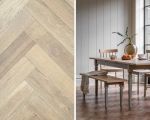- Understanding the Importance of Flooring in Your Hallway
- Factors to Consider When Choosing Flooring for Your Hallway
- Top Flooring Options for Hallways
- How to Maintain Flooring in High Traffic Areas
- When to Seek Professional Help for Flooring Installation
Understanding the Importance of Flooring in Your Hallway
The hallway is one of the most used spaces in any home. It serves as a transition zone between rooms, connects the inside of your house with the outside, and often gets more foot traffic than other areas. As such, the flooring you choose for your hallway plays a significant role in both the aesthetic and practical functionality of this space. Whether you are renovating an existing hallway or designing a new one, selecting the right flooring is essential for creating a welcoming and durable environment.
Not only does hallway flooring set the tone for the rest of your home’s interior design, but it also needs to withstand the daily wear and tear caused by heavy foot traffic. As this area is exposed to constant use, durability and maintenance are key factors when choosing the right flooring. Additionally, the right choice can enhance the aesthetic value of your home, complementing your overall interior theme. In this article, we will discuss tips for choosing the best flooring for your hallway, considering factors such as durability, maintenance, style, and cost.
Factors to Consider When Choosing Flooring for Your Hallway
Before diving into the various types of flooring available, it's important to consider several key factors that can influence your decision. These include the level of traffic in your hallway, your budget, and the overall look and feel you want to achieve. Let's break down these factors in detail:
1. Traffic and Durability
The most crucial factor when selecting flooring for your hallway is the level of foot traffic it will experience. High-traffic areas require flooring that is durable and capable of withstanding daily wear. Hallways are often exposed to dirt, moisture, and heavy foot traffic, so it's essential to choose materials that can handle these conditions without showing signs of damage too quickly.
2. Maintenance
Another important consideration is how easy the flooring will be to maintain. Hallways tend to accumulate dirt and dust, so it’s important to choose materials that are easy to clean and maintain. Certain materials, such as hardwood, may require regular polishing and care, while others like vinyl or laminate are relatively low-maintenance. If you have pets or young children, you may want to choose a flooring option that is stain-resistant and easy to wipe clean.
3. Style and Aesthetic Appeal
The flooring you choose should complement the overall design of your home. The hallway often serves as the first impression of your home, so it's important to select a style that matches your décor. Whether you prefer a modern, rustic, or classic look, there are flooring options available that can achieve the desired aesthetic. Consider the color, texture, and finish of the flooring, as well as how it will blend with the surrounding rooms.
4. Budget
Lastly, your budget will play a significant role in determining which type of flooring is best suited for your hallway. Some materials, like hardwood or marble, can be expensive, while options like laminate or vinyl are more affordable without sacrificing durability. Be sure to consider the long-term costs of your flooring, including installation and maintenance, to ensure that you stay within your budget.
Top Flooring Options for Hallways
Now that we've discussed the factors to consider, let's explore some of the top flooring options for hallways. Each material has its own benefits, so it's essential to choose one that fits your needs and lifestyle:
1. Hardwood Flooring
Hardwood flooring is a classic and timeless choice for hallways. Its natural beauty and warmth can enhance the look of any space, making it a popular choice for many homeowners. Hardwood floors are durable and easy to clean, although they may require regular maintenance, such as refinishing, to maintain their appearance over time. They are also sensitive to moisture, so it's important to avoid excessive humidity in your hallway area.
2. Laminate Flooring
Laminate flooring is a cost-effective alternative to hardwood, providing similar aesthetics with better durability. Laminate is highly resistant to scratches, dents, and stains, making it a great choice for high-traffic hallways. It is also relatively easy to maintain, requiring only occasional sweeping and mopping. Additionally, laminate flooring comes in a variety of styles and finishes, so you can find an option that complements your home’s design.
3. Vinyl Flooring
Vinyl flooring is another affordable and practical option for hallways. Available in both sheet and tile forms, vinyl is highly water-resistant, making it ideal for households with pets or children. It is also soft underfoot, which can be a great option for reducing noise in high-traffic areas. Vinyl comes in a wide range of styles, including options that mimic the look of wood or stone, providing versatility in design. It is easy to install and maintain, requiring minimal effort to keep it looking good.
4. Ceramic or Porcelain Tile
If you want a sleek and modern look, ceramic or porcelain tile may be the right choice for your hallway. Both options are extremely durable, water-resistant, and easy to clean. Tiles come in a variety of colors, textures, and sizes, allowing you to customize the look of your hallway. However, tiles can be cold underfoot and may require grout cleaning to maintain their appearance.
5. Carpet or Rugs
While not as durable as hard flooring options, carpet or rugs can provide comfort and warmth to your hallway, especially in colder climates. They also help with soundproofing and can add a soft touch to the space. However, carpet is prone to staining and can require frequent cleaning, making it less ideal for high-traffic areas. If you opt for carpet, consider using rugs in areas with the most foot traffic, as these can be easily replaced if worn out.
How to Maintain Flooring in High Traffic Areas
Once you’ve chosen the perfect flooring for your hallway, it’s essential to maintain it properly to ensure it lasts for years to come. Here are some tips for maintaining flooring in high-traffic areas:
- Regular Cleaning: Sweep or vacuum your hallway regularly to remove dirt, dust, and debris that can damage the flooring over time.
- Use Mats and Rugs: Placing mats at the entrance and along high-traffic areas can help reduce wear on the flooring and prevent dirt from being tracked inside.
- Consider Floor Protectors: Using furniture pads or floor protectors under heavy furniture can prevent scratches and dents from occurring.
- Promptly Clean Spills: Wipe up spills immediately to prevent staining or moisture damage, especially for materials like hardwood and laminate.
When to Seek Professional Help for Flooring Installation
While many homeowners choose to install flooring themselves, there are instances when it’s best to seek professional help. If you’re unsure about the installation process or want to ensure that your flooring is installed correctly, hiring a professional can save you time and effort. Additionally, professional installation ensures that your flooring will last longer and will be properly sealed or finished for optimal performance.
If you're considering installing new flooring in your hallway, it's worth exploring options from Improvement to get the best products and expert advice. Professional installers can help you choose the right materials, handle complex installations, and ensure that your hallway looks its best.








